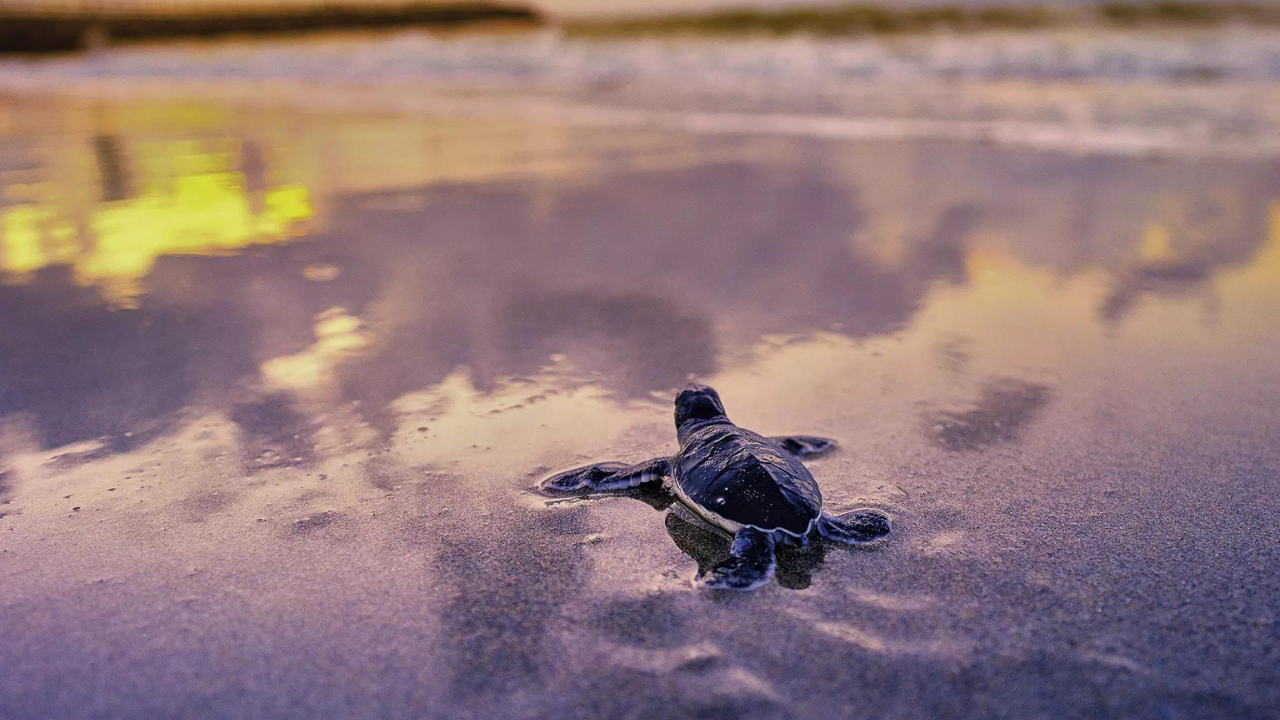NEW DELHI: Rising sea temperatures due to climate changeare causing tropical marine species to move from the equator towards the poles, according to a study. The research, published in the journal Trends in Ecology and Evolution, also shows that temperate species are receding as it gets too warm, they face increased competition for habitat, and new predators arrive on the scene.
This mass movement of marine life, termed tropicalisation, is changing the ecological landscape of our oceans and leading to a cascade of consequences for ecosystems, biodiversity, and potentially the global economy, the researchers said.
The publication of the study coincides with the start of COP28 in Dubai, where global policymakers congregate and make pledges to tackle the impact of global warming.
In recent years, climate change has altered the physical factors that affect species dispersal, such as ocean currents in areas that separate tropical/subtropical and temperate regions, the researchers said.
These warm-water boundary currents are heating faster than the global seawater average, facilitating the poleward movement of species, and reinforcing the retraction of temperate species, they said.
The first instance of this process was identified in the Mediterranean Sea, now considered a “tropicalisation hotspot” due to an increase in tropical species present.
“Tropicalisation is having a multitude of ecological and evolutionary consequences for species, communities, and whole ecosystems, with the potential to alter global diversity patterns,” said Karolina Zarzyczny, a researcher at the University of Southampton, UK, and lead author of the paper.
The study is an extensive review of the literature published over the past 20 years, and is the first step in impressing upon the scientific community the gaps in our understanding of the problem, the researchers said.
“Although the abundance, distribution and presence of species across tropical, subtropical and temperate zones has been documented many times, there is a fundamental lack of understanding of the long-term evolutionary consequences once new species live together,” said Suzanne Williams, Scientific Associate at the Natural History Museum, UK, and co-author on the paper.
Given how closely ecology and evolution interact, altered species interactions may lead to the evolution of new traits or behaviours, the researchers said.
For example, in a recent study by the University of Southampton, temperate volcano barnacles have begun to “bend” to fend off range-expanding tropical predators along the Baja California peninsula in Mexico, they said.
Similarly, range-expanding tropical damselfishes and temperate reef fishes have been documented altering their feeding and social behaviours to allow for coexistence, the researchers added.
This mass movement of marine life, termed tropicalisation, is changing the ecological landscape of our oceans and leading to a cascade of consequences for ecosystems, biodiversity, and potentially the global economy, the researchers said.
The publication of the study coincides with the start of COP28 in Dubai, where global policymakers congregate and make pledges to tackle the impact of global warming.
In recent years, climate change has altered the physical factors that affect species dispersal, such as ocean currents in areas that separate tropical/subtropical and temperate regions, the researchers said.
These warm-water boundary currents are heating faster than the global seawater average, facilitating the poleward movement of species, and reinforcing the retraction of temperate species, they said.
The first instance of this process was identified in the Mediterranean Sea, now considered a “tropicalisation hotspot” due to an increase in tropical species present.
“Tropicalisation is having a multitude of ecological and evolutionary consequences for species, communities, and whole ecosystems, with the potential to alter global diversity patterns,” said Karolina Zarzyczny, a researcher at the University of Southampton, UK, and lead author of the paper.
The study is an extensive review of the literature published over the past 20 years, and is the first step in impressing upon the scientific community the gaps in our understanding of the problem, the researchers said.
“Although the abundance, distribution and presence of species across tropical, subtropical and temperate zones has been documented many times, there is a fundamental lack of understanding of the long-term evolutionary consequences once new species live together,” said Suzanne Williams, Scientific Associate at the Natural History Museum, UK, and co-author on the paper.
Given how closely ecology and evolution interact, altered species interactions may lead to the evolution of new traits or behaviours, the researchers said.
For example, in a recent study by the University of Southampton, temperate volcano barnacles have begun to “bend” to fend off range-expanding tropical predators along the Baja California peninsula in Mexico, they said.
Similarly, range-expanding tropical damselfishes and temperate reef fishes have been documented altering their feeding and social behaviours to allow for coexistence, the researchers added.
Denial of responsibility! Swift Telecast is an automatic aggregator of the all world’s media. In each content, the hyperlink to the primary source is specified. All trademarks belong to their rightful owners, all materials to their authors. If you are the owner of the content and do not want us to publish your materials, please contact us by email – swifttelecast.com. The content will be deleted within 24 hours.


